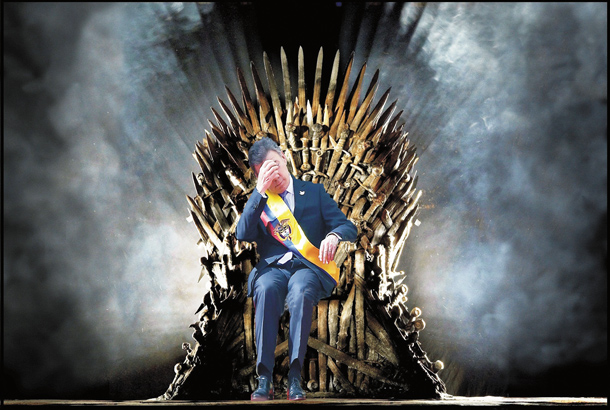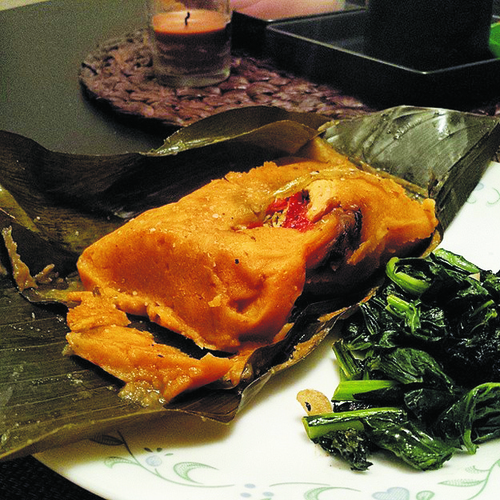
The Aguanilé cast on stage. Photo: Casa E
A lively musical which takes viewers back to the heyday of Cali’s salsa revolution, this raunchy show promises plenty of energy and dancing.
“Let the whole world sing to you,” go the lyrics to Cali Pachanguero, a love song to Colombia’s third largest city and distinguished salsa capital of the world. The song is just one of many energetic tunes heard in this lively, salsa-based musical, Aguanilé, which thrusts audiences into the manic world of 1970s Cali. Taking its name from the song composed by duet Willie Colón and Héctor Lavoe, Aguanilé is an ode to the musical and artistic culture that came out of the city during this period, with the 25 artists on stage passionately singing to, and for, Cali.
Aspiring composer Daniel (Karoll Márquez) arrives in Cali with the intention of furthering his musical career, but his devotion is tested after he joins a collection of miscreants living in a shared boarding house owned by the hierophantic Carmen (Myriam de Lourdes), a lady whose Cuban influence is perhaps an allusion to the country whose rhythms originally gave birth to Colombian salsa.
Despite his attempts not to, Daniel soon falls sway to temptation and gets sucked into the commotion, as Lupe (Natalia Bedoya), Carmen’s daughter and de facto leader of the small group of dissident dancers, inveigles the stuttering bespectacled songsmith with a combination of charming haughtiness, flirtatious remarks and sexual magnetism.
‘Salsa’ means sauce in Spanish, and what better way to describe the musical than saucy, with a heavily-sexualised script accompanied by raunchy outfits. Yet focusing on the show’s risque nature would unfairly overshadow the flawless singing, superb musical backing and skill of the dancers, the highpoint of which is a wonderfully-choreographed dance/fight scene between the group and the police in a confrontation reminiscent of the musical gang-fights of West Side Story.
Aguanilé must be praised for capturing the revolutionary spirit so ubiquitous during the 1970s in Latin America. Youthful idealism and genuine intentions abound, yet despite the auspicious high-spirited beginning, the story ends in tragedy, a common theme in the lives of those who attempt to subvert democracy in the alluring name of revolution.
Despite its impressive mix of music and dance, the play seems to end rather abruptly, and the relationship between the two protagonists does not have time to fully develop (for all the promise, the only moment of romance shared by Daniel and Lupe is a brief kiss on the lips). Yet this pales into insignificance as we witness one breathtaking artistic moment after another. The best of these is saved until last, as Lupe, moments away from shuffling off her mortal coil, delivers a tremendous oratory performance that makes spines tingle and goosebumps emerge.
Discussing what inspired him to write the musical, Juan Carlos Mazo spoke of his concern about the lack of original musicals in Colombia, stressing the need to tell Colombia’s stories with “our music and our language.” If other offerings are anything like Aguanilé, few viewers could have any complaints.
May 2 – July 14: Wednesday, Thursday and Friday 8pm; Saturday 5pm and 8pm
Tickets: $45,000
Casa E, Avenida Carrera 24 #41-69





